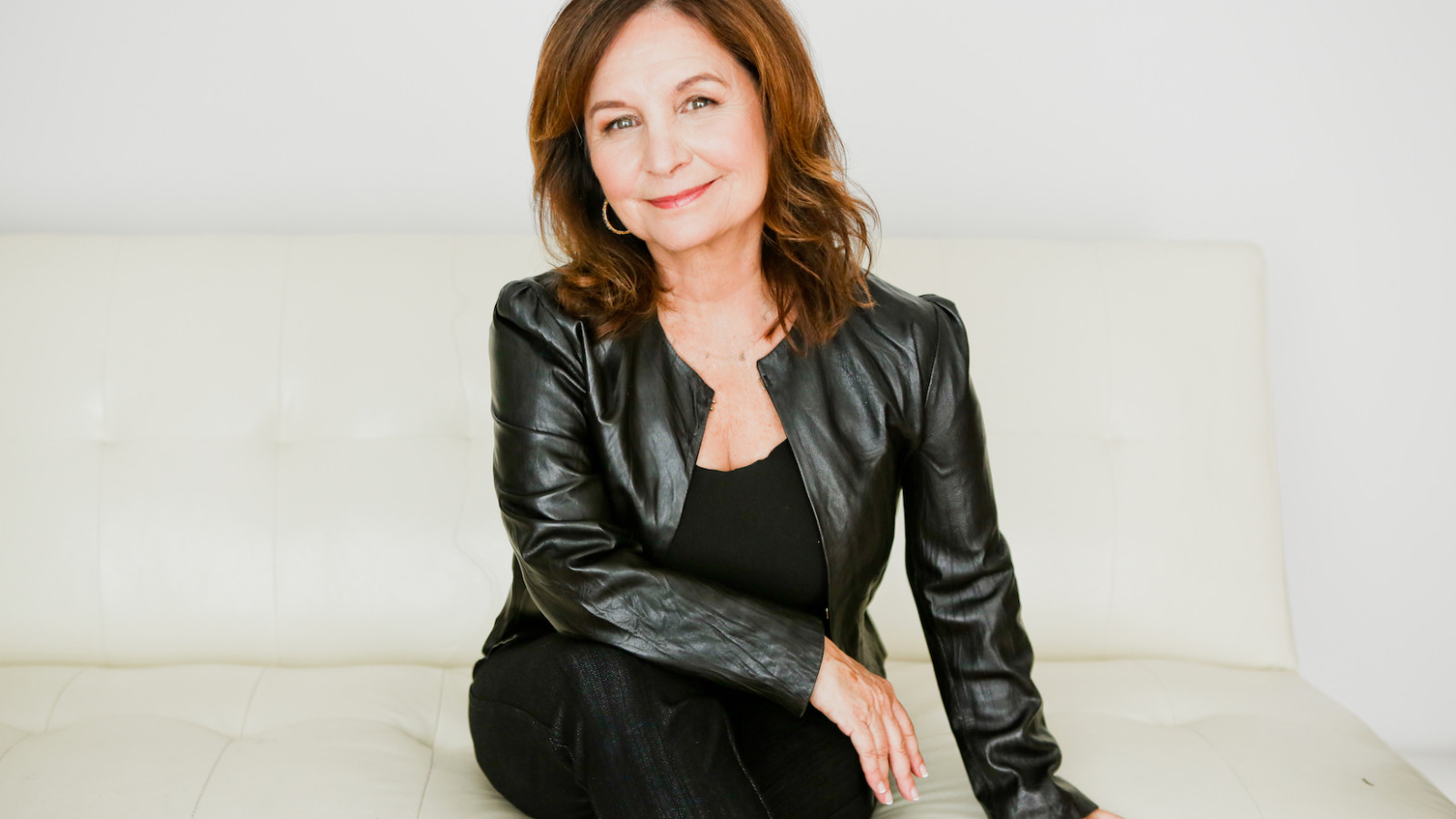Tabby Biddle speaks with Elaine Hall, the founder and artistic director of The Miracle Project and star of HBO’s Emmy-Award Winning film Autism: The Musical, about her mission to transform the way the world sees ability.
Over two decades ago, Elaine Hall, also known as “Coach E”, was a top acting coach in Hollywood when she discovered that her newly adopted two-year-old son from Russia had severe autism.
Her son, Neal, spun around in circles, banged his head and had tantrums for hours. When traditional behavioral therapies didn’t work, Elaine took matters into her own hands. Instead of trying to “fix” or change her son, Elaine joined his autistic world. When her son spun in circles, Elaine joined with him. When he flapped his hands, she flapped too—and they became birds flying around the room together. She allowed herself to be curious, rather than judgmental, and as a result, she and Neal began to connect. Elaine began seeking information from experts in the field of autism, including Dr. Stanley Greenspan, Dr. Ricki Robinson and Dr. Barry Prizant who encouraged her to keep doing what she was doing. She then rallied her actor, singer and dancer friends to implement what she was learning. Slowly, her son merged out of isolation.
Through Elaine’s experience with Neal, she developed two methodologies—“Inclusion from WithIn” and “The Seven Keys to Unlock and Understand Autism” to train others. In 2005, using these methodologies as the backbone, she founded The Miracle Project, a groundbreaking, award-winning inclusive theatre, film and expressive arts program, profiled in the Emmy-winning HBO documentary, AUTISM: The Musical.
Since this time, Elaine has become a pioneer in using inclusive theater, film, music, and movement to bring out the often unheard voices of autism, and bring out the best in individuals with all abilities. Her students, and her son, once isolated, withdrawn, and too anxious to even walk into a room of peers, have now developed friendships, positive social skills, and have jobs. Some are pursuing professional careers in the entertainment industry, appearing in feature films and on hit TV shows such as Parenthood, Speechless, Atypical and The Good Doctor, and performing on stages with Jack Black, Crosby, Stills, Nash and Young, at Carnegie Hall, Lincoln Center, and the United Nations.
Elaine has co-written over 30 musicals, is a consultant and on-set coach for TV and film, including Netflix, Amazon, Sony and others. She also leads trainings in autism, neurodiversity and inclusion at universities, including at Brown University, UCLA, NYU, at faith-based organizations, at corporations, and travels worldwide speaking about The Miracle Project and how the program can be replicated globally.
Elaine’s memoir, Now I See the Moon, was the official selection by the United Nations for World Autism Awareness Day, where she has been a featured speaker several times, and her textbook Seven Keys to Unlock Autism (which she co-authored with Diane Isaacs)was recently selected as one of the 15 best books on Autism and is used by Brown University.
Nominated as one of Los Angeles’ 50 most inspiring women, Elaine has received honors from Autism Speaks, Autism Society of L.A., The Mayor of Los Angeles, Holly Robinson Peete, The Shalom Institute, Etta Israel and others.
Elaine is the mother of a 26-year-old non-speaking autistic son Neal, who is a semi-professional model, lives in his own apartment with support and has presented with her at the United Nations. The Miracle Project is endorsed by autism experts worldwide and is being replicated globally.
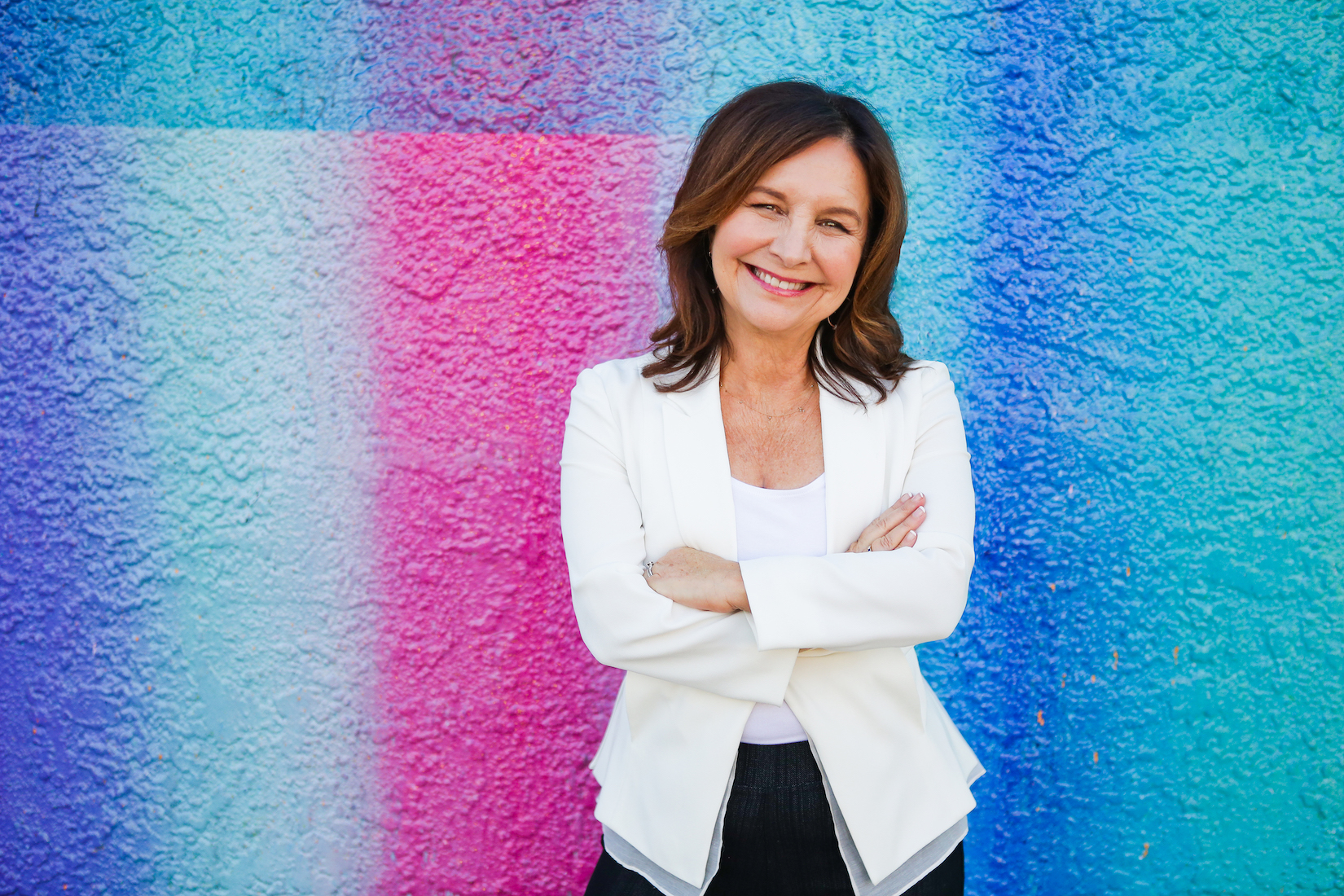
Tabby: The theme of this interview is voice, leadership and legacy. Let’s start with your voice. You use your voice in many different ways—through writing, teaching, speaking, directing, consulting, advocating and more. How would you describe where you are right now with your voice?
Elaine: Right now, I feel that I know my voice. I know who I am. I know what I have to offer. I’m very confident in my message, and have clarity about who I am. I’m still challenged with the courage to let myself express my voice outside of my comfort zone and my world. For example, this interview is bold for me. I’ve spoken at the United Nations about autism, neurodiversity and inclusion—but being invited to share my truth and my voice in a community outside of the disability community or the neurodiverse community, that’s a challenge. But I know that’s where I need to go. I feel that fortunately because of my voice in that community, there’s a movement and it’s all catching up. The next step is for me to bring my voice into the larger arena.
Tabby: Where do you feel the most powerful and natural using your voice?
Elaine: When I connect to my higher purpose, my higher vision, and to my soul wisdom, I open my mouth and let the words come out. I’m a writer. I love writing and expressing my voice through my writing. I have two books. One is my personal story. One is my methodology. I know my methodology works. I knew it worked even before it became evidence based. I feel very strong about my methodology.
I taught myself how to type when I was eight years old. The purpose was so that I could write plays. I’ve been writing original musicals for years. It’s collaborative. I bring out the voices of the participants, and they collaborate with me as we create original musicals. I’m a lyricist, and a storyteller.
I’ve been very comfortable within the neurodiverse community, or within workshop community with the plays that I’ve written. I know that they deserve a broader audience. I’m clearly comfortable when I teach and when I train people. I have complete confidence in who I am and my methods and my stories. When I work with individuals of all abilities, I know that I can help them be the best that they can be. In Hollywood and in the media, I’m a voice for inclusion, and a voice for neurodiversity and authenticity in casting. A book that I’ve written is being considered for a film. I really feel that it can contribute to cultural change.
“One of the ways that I thrive is through leading. We have sing-alongs at The Miracle Project. Even if there’s 50 to 100 people on the Zoom room, I know that I have an ability to give each person an opportunity to shine. I love it. I just love singing and dancing and acting with people.”
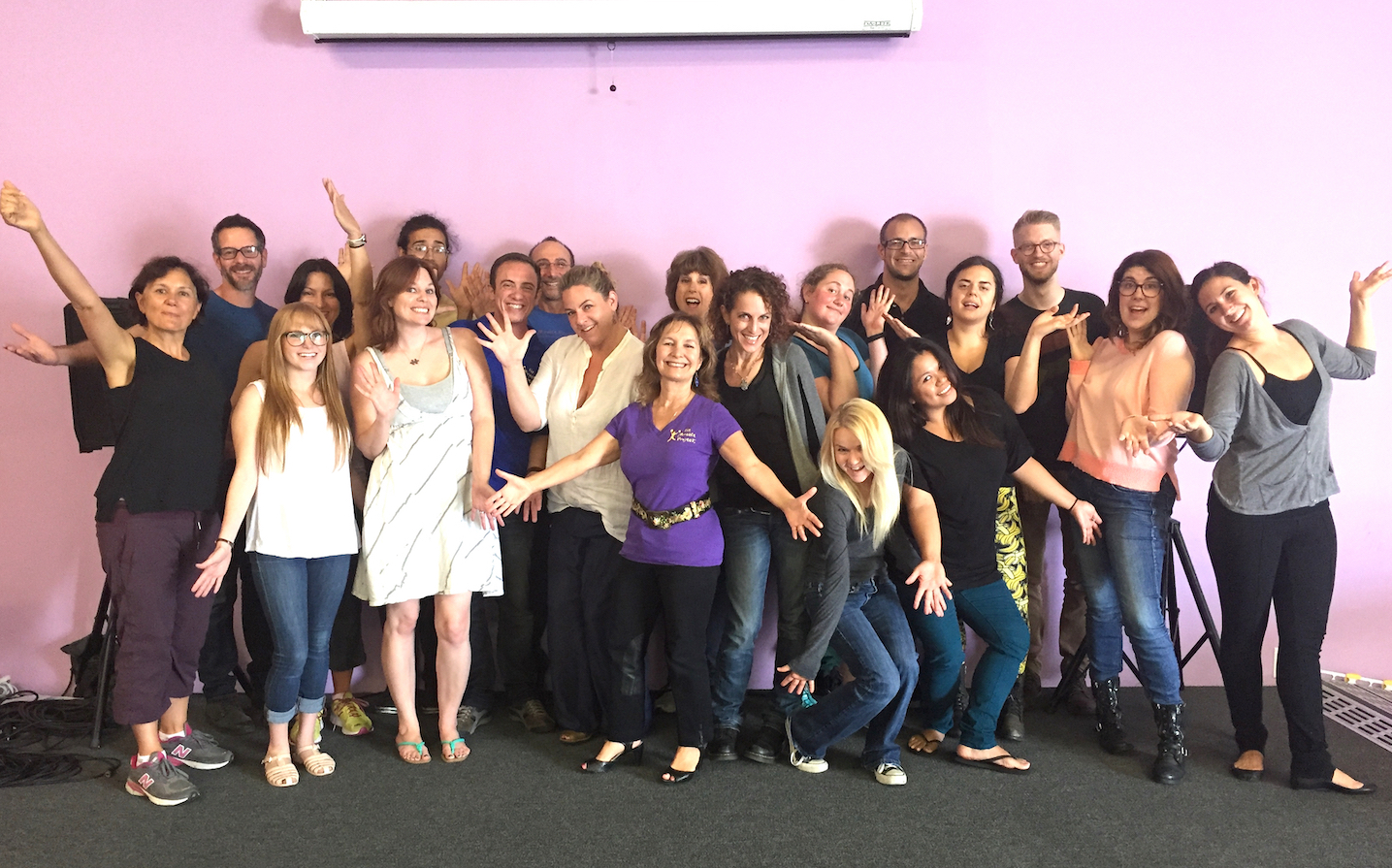
Tabby: I can see you light up when you talk about that. I feel lit up just listening to you. Let’s talk about your leadership. How would you describe yourself as a leader? And what do you value in leadership?
Elaine: It’s funny because I’m more of an introvert—a social introvert. So I’ve always felt leadership meant collaboration, and we’re all in this together. It was a real schism for me to figure out where I was in that circle. If we’re all around the roundtable, and I have a strong opinion, who gets the final choice and the final word? I’m learning that if it’s a program that I’ve initiated, with my voice and my mission and my purpose, then I have an obligation to listen to others’ opinions and wisdom, and yet, at the same time, assess and make the final decision. I think up until now, I was either too quiet to let my voice out, or I felt like I had to do it “My way or the highway.” I’m not a competitive person. I thought I had to train myself to be more competitive in order to be successful. It’s so against my fiber of being that it actually causes me tremendous pain. One up one down actually hurts my heart.
I’ve had people take my methods without giving me credit. That’s been heartbreaking for me. I applaud their success, but I don’t understand. I love and cherish giving people credit, which I think is more feminine leadership. My mentor, Dr. Barry Prizant, gives everyone credit and he’s extraordinary. I found that there are so many people that have learned from me, but without giving credit. So, I’ve learned as a female leader, how to protect myself and to have all the legal protection so that I don’t have to be a loud voice. It’s just all clear. I think that’s really important for women. If you look at the Queen archetype, there’s a reason you have a drawbridge and a moat, and big walls, so that you can lead from a higher place, but also have the necessary protections and precautions. I’ve learned to do that so that I can still be my loving, compassionate self that is natural. I’ve also learned that to be bold, I don’t have to be extroverted, loud and competitive. I can be bold by sharing my truth.
“I’ve also learned that to be bold, I don’t have to be extroverted, loud and competitive. I can be bold by sharing my truth.”
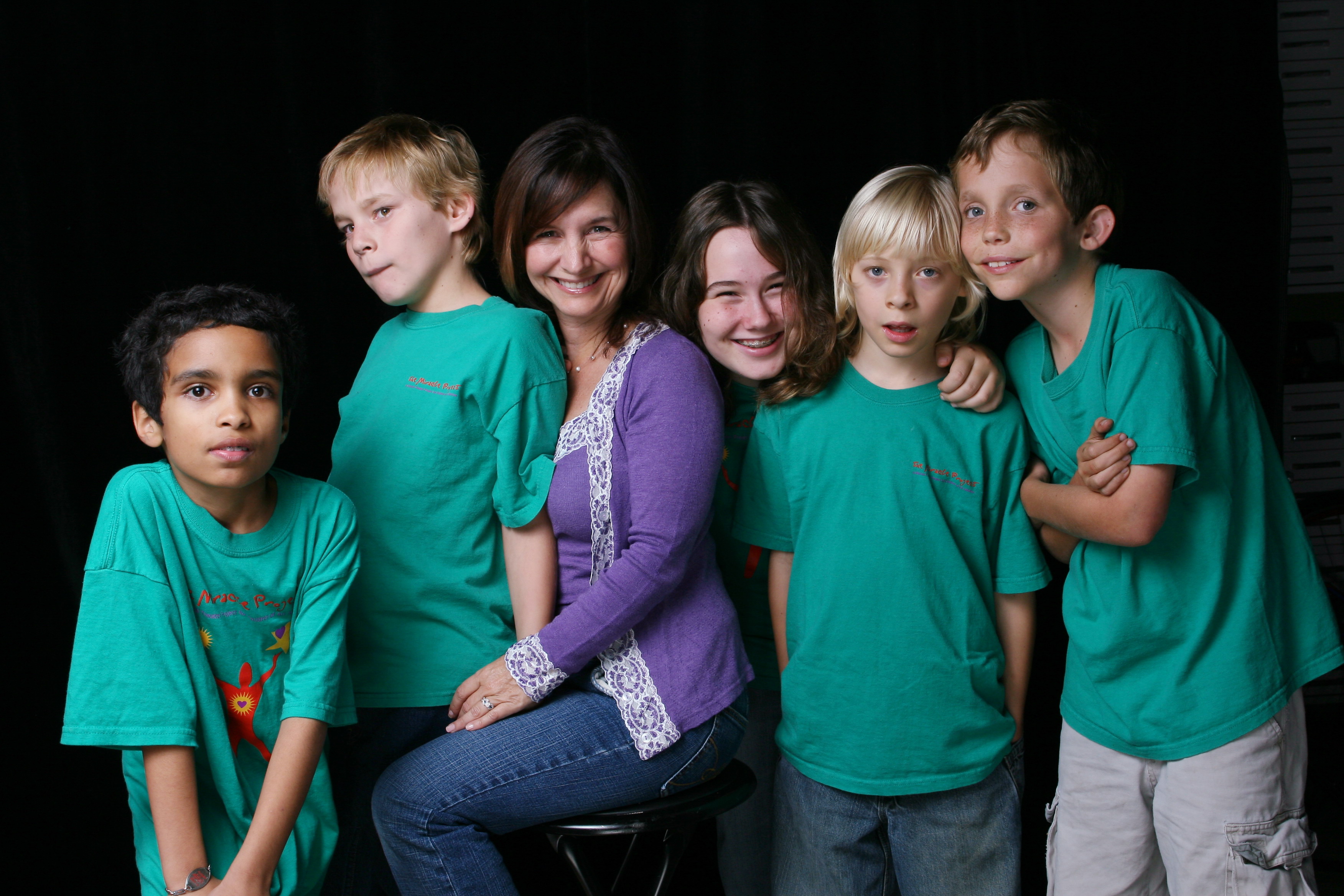
Tabby: Let’s go a little further with that to some specific instances. You’ve been working as an onset coach and consultant on Netflix’s hit series, Atypical, and you’re soon going to be working on an upcoming Amazon project that features lead actors on the autism spectrum. How do you use your voice and your leadership in these roles?
Elaine: First, by example. Atypical was the first show to have a peer group of all individuals on the spectrum. In the beginning, they just gave them one line or so. I knew these actors. They’ve been in The Miracle Project for many, many years. I know their talent, and I know their ability. So, we all just showed up and did our thing. Then everyone around realized that there are talented actors who just happen to have autism. I help to create a supportive environment within the structure of Hollywood. This is something that I do very well. I also support actors by training them. Most of the training is just allowing their dreams to be reality—to know that they can. If they’ve always had a dream to be on TV and in film, they can do it. My job is to help them access who they naturally are.
On the set, I’m there for everything from talking to the gardener to the head of production. For example, I’ll ask the gardener to please turn off noisy lawnmowers when we go from our trailer to the set. To production, I’ll ask for a quiet set when we’re making transitions, going from one space to another. I’m present for the actors to help them in any way they need. To the director, I’ll let them know that some of our actors are going to give their best performances if you do their close up first. Some of our actors are going to give the best performance if they do their close up last. Some of our actors may give 100% every single time. Mostly actors on the spectrum are extremely professional, know their lines, take direction, and add nuance to the scene.
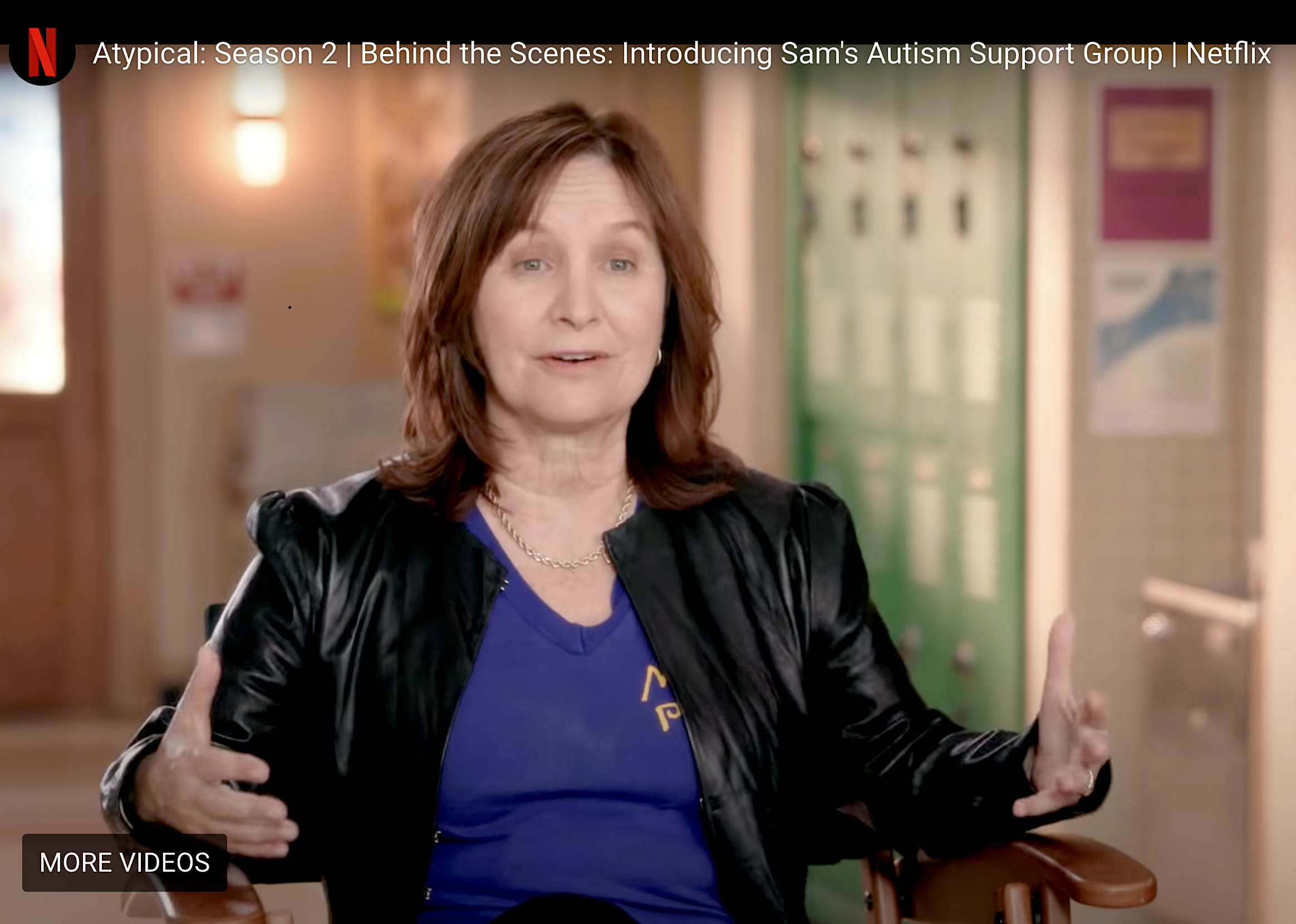
Elaine: I’ve been in Hollywood for years, in many capacities. So I know how to speak the language in so many different ways, and become an asset to the production. I also get to look at scripts. There’s language that sometimes people don’t even think about that can be derogatory. For example, something that seems innocuous, like a character might say, “Oh, that’s so lame.” Well, that is a derogatory word in the disability community. We don’t use that word. The history of it was to put down someone who had a disability—someone who had mobility issues.
Another example is that sometimes on a show or in a film, they’ll have the neurotypical character solve the problem. I’ll say, “No, we want to be changing culture. Allow the person with a disability to use the guidance from others, but to solve their own problem.” In that way, I’m an onset advocate, as well as a coach. In my role, I need to be able to be a voice of the community, and for people to run things by me. So I do many, many things because of my years of experience working in TV and film.
“When I first started, I would apply for grants and people said, ‘What you’re doing is impossible.’ I would just coyly say back, ‘I’m so glad I didn’t know it was impossible, because I’ve been doing this for two years.’”
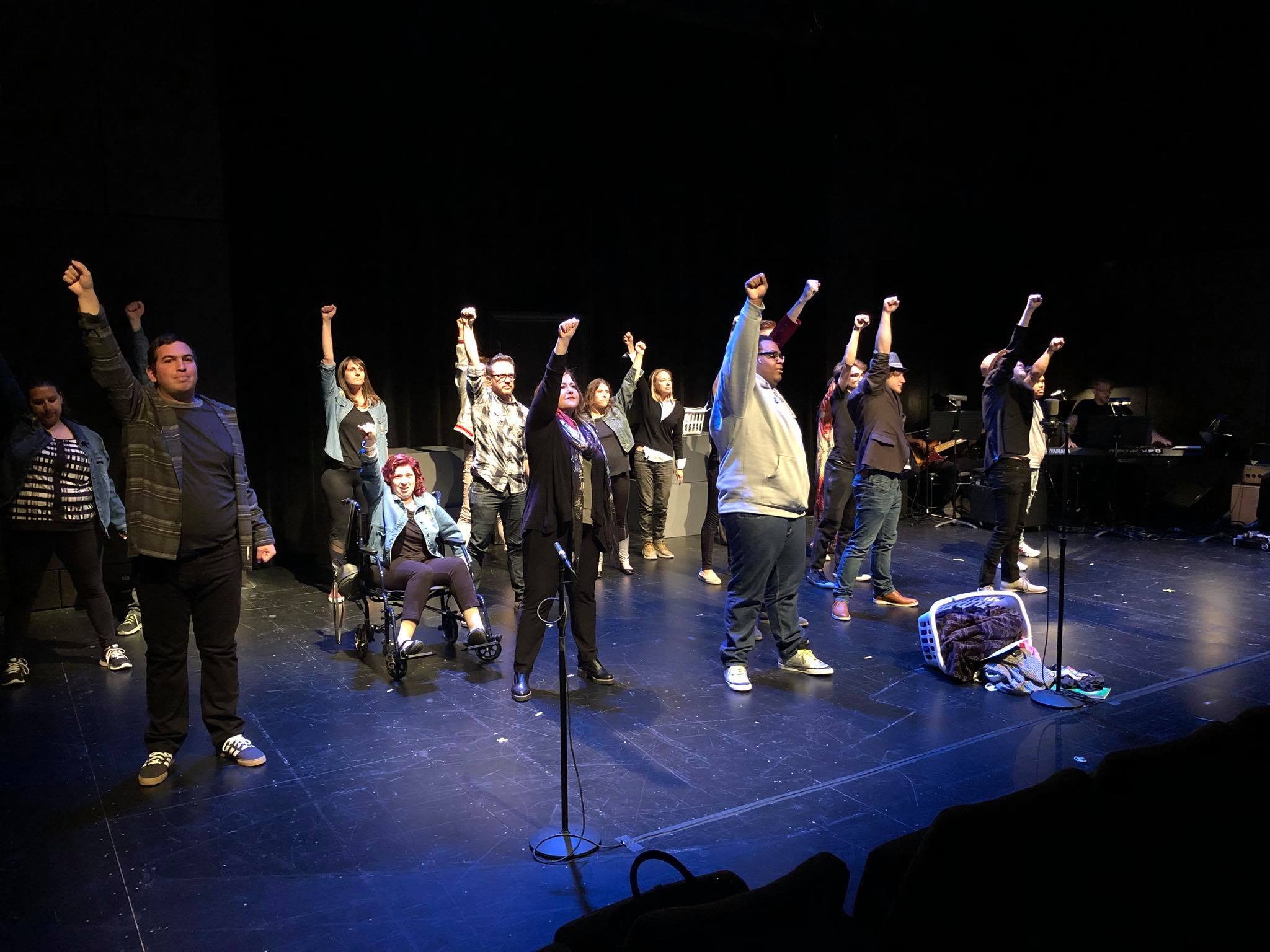
Tabby: I am so inspired by what you’ve created with The Miracle Project. How would you say your leadership with The Miracle Project has evolved over time?
Elaine: The concept for The Miracle Project started with my son. I adopted a son from Russia, who came to me with autism. Traditional therapies didn’t work for him. What worked was joining his autistic world. Meeting him where he was. I did everything that I would always do with neurotypical kids, but just with more intensity and focus of really becoming part of his autistic world. Through that, he emerged into our world.
I learned from the best in the field of autism. Dr. Stanley Greenspan was my son’s doctor and my mentor. And now Dr. Barry Prizant and Stephen Shore. My leadership is based in being willing to learn, always wanting to absorb everything I can, and learn and learn and learn and learn. Then when I fill myself up, I have no choice but to teach. I’ve been able to give away everything that I’ve learned so that others can be as good and effective as I am. I take great pride and joy that The Miracle Project has phenomenal master teachers who have been trained by my methods without sometimes even realizing it.
Where I’m growing in my leadership is claiming that I created this. This did not exist before. I worked with my son this way. Dr. Greenspan encouraged me to create a theater program using what I was doing. At first, I thought, I don’t know what I’m doing. But I did know what I was doing. I have to boldly claim that I am a pioneer in neurodiverse, inclusive theatre and film. It’s through my work that now it’s commonplace all over the country for there to be inclusive theater.
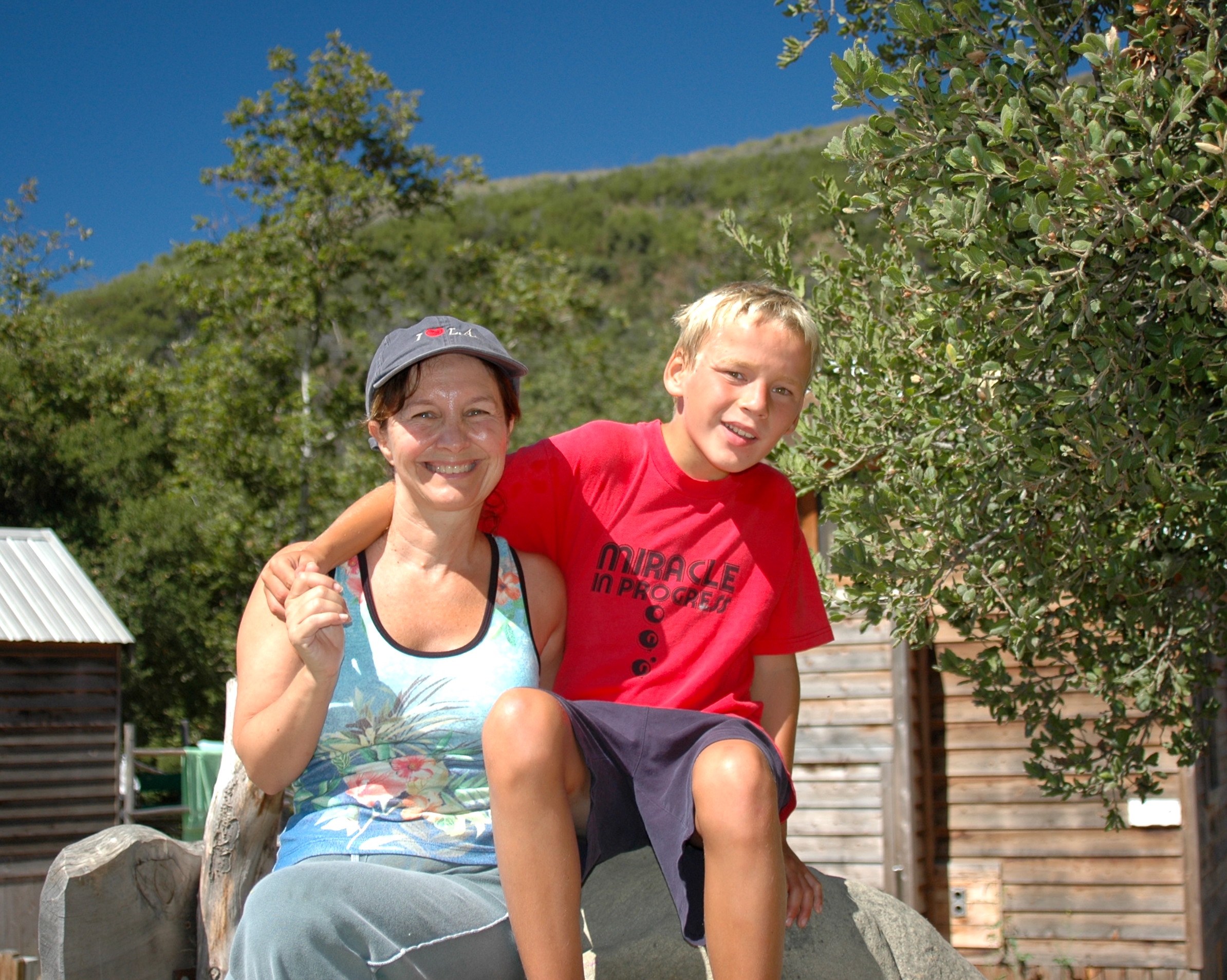
Elaine: When I first started, I would apply for grants and people said, “What you’re doing is impossible.” I would just coyly say back, “I’m so glad I didn’t know it was impossible, because I’ve been doing this for two years.” So now it’s just common that of course, there’s inclusive theater. And of course, there’s people with autism. And of course, theater impacts individuals on the spectrum. And of course, music is a way in.
All these people were doing this in therapeutic environments—through drama therapy and music therapy and movement therapy, but we’re not therapy. We’re therapeutic in the way that the arts are therapeutic for all individuals. So, my leadership has been in creating, developing, training others, impacting others, and then claiming what I’ve done and owning my work. As a shy person, it’s hard to do. When I was in high school, I ran for vice president of the senior class, and the president didn’t do anything. I did everything. But I was really just fine being the second. That’s been my growth. Learning that, “No, I’m going to do the work, and I’m going to be the president.”
“At first, I thought, I don’t know what I’m doing. But I did know what I was doing. I have to boldly claim that I am a pioneer in neurodiverse, inclusive theatre and film. It’s through my work that now it’s commonplace all over the country for there to be inclusive theater.”
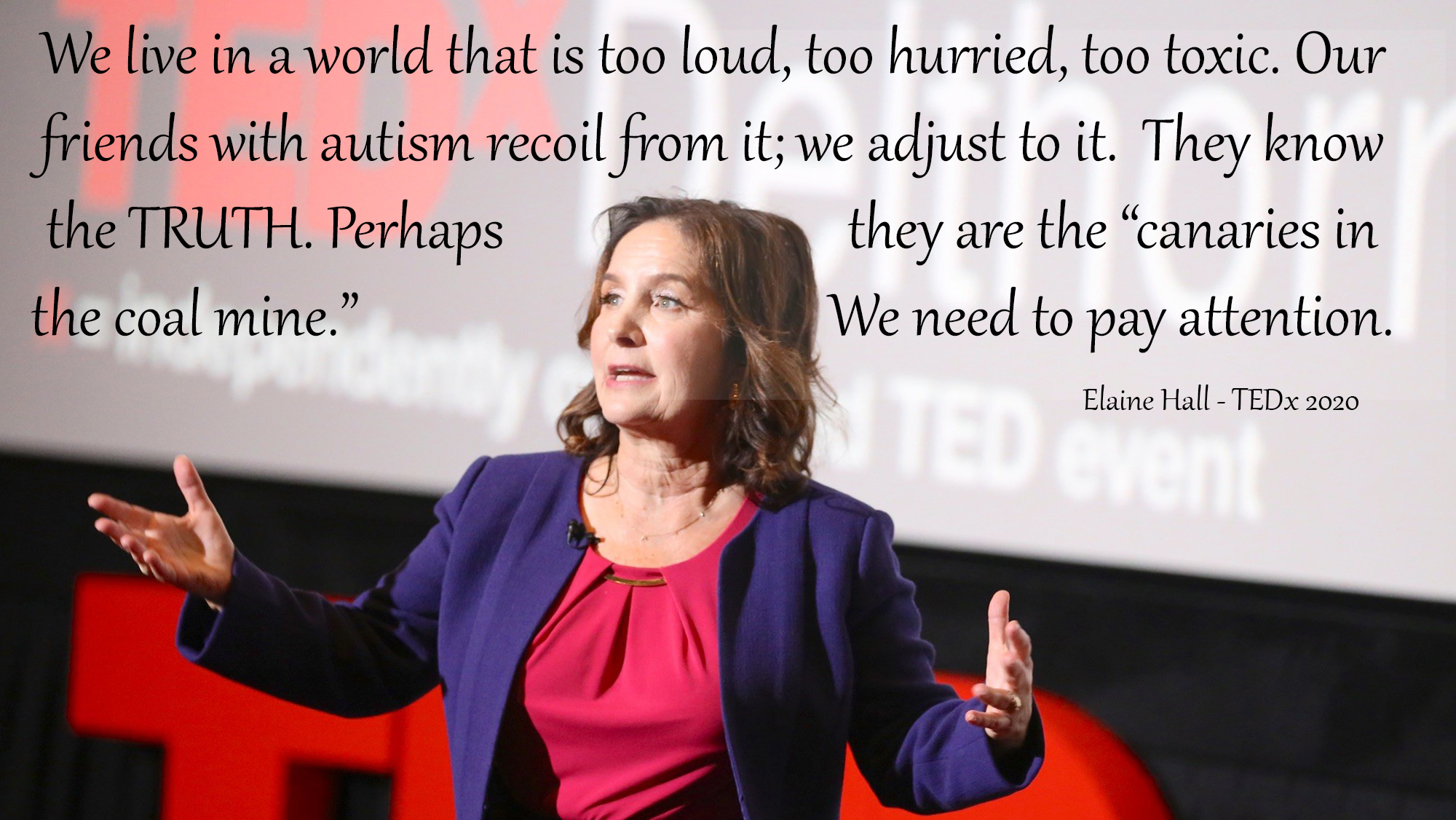
Tabby: The Miracle Project is clearly part of your legacy. What else do you see as your feminine legacy?
Elaine: It’s about listening. It’s about listening to my heart. Listening to my Highest Self. Tuning into what’s much greater than I am, and allowing my soul to lead.
Tabby: Speaking of feminine legacy, as you know, so many women’s stories and voices have been omitted from our history books and cultural knowledge. Fortunately, today there’s a growing movement to reclaim those stories. How much do you know about your female lineage and ancestors? And how do you know it?
Elaine: I just know my grandparents’ generation—a little bit more on my father’s side—but I don’t know back before my grandparents. I wish I did. I wish I knew more. I know my grandmothers’ stories from both sides. That’s been a really important part of my life. My family, especially on my dad’s side, would tell stories. They were storytellers. My grandfather was an orphan from Russia, and I got to hear the whole coming to America story.
I had three aunts on my dad’s side—my father’s sisters—that were quite extraordinary. One was especially heroic. She was born with a hole in her heart. They thought she was going to die young, so they never given a middle name. She was told not to exercise because it could kill her. So she couldn’t walk up the stairs. She never was able to get a full education because the higher grades were on the second floor. This ties in with disability awareness. She never got a full education. But she was extremely bright and self taught. She also had a boyfriend but couldn’t marry because she couldn’t have children. We’re from an Orthodox Jewish family. You don’t marry unless you have children. So she lived on her own with my grandparents. I think she lived with my grandparents until they passed away. She was unhappy and she was lonely. My father would come over to the house and I remember her hugging and pounding the back of him—crying and screaming “Sol, Sol. I’m so lonely. I’m so lonely.”
But she was a brilliant writer. She would document the history of our family. Whenever we had a question or disagreement with our parents, we would say, “Call Aunt Pearl,” because she had such wisdom. When Aunt Pearl would make a decision, everybody listened to her. For example, as a little girl, I would say “God is in here” pointing into my heart. I would say “God is not a man in the sky. God is in here. I feel God there.” My dad was more traditional and would say, “God is in the Torah,” and I would scream and fight about where God was. Then I’d say, “Okay, let’s ask Aunt Pearl,” and Aunt Pearl would be able to co-sign that God is in the heart and God is all around us.
“I started writing because of Aunt Pearl. I had a diary by the time I was seven and I wrote everything in my diary. I aspired to being a writer.”
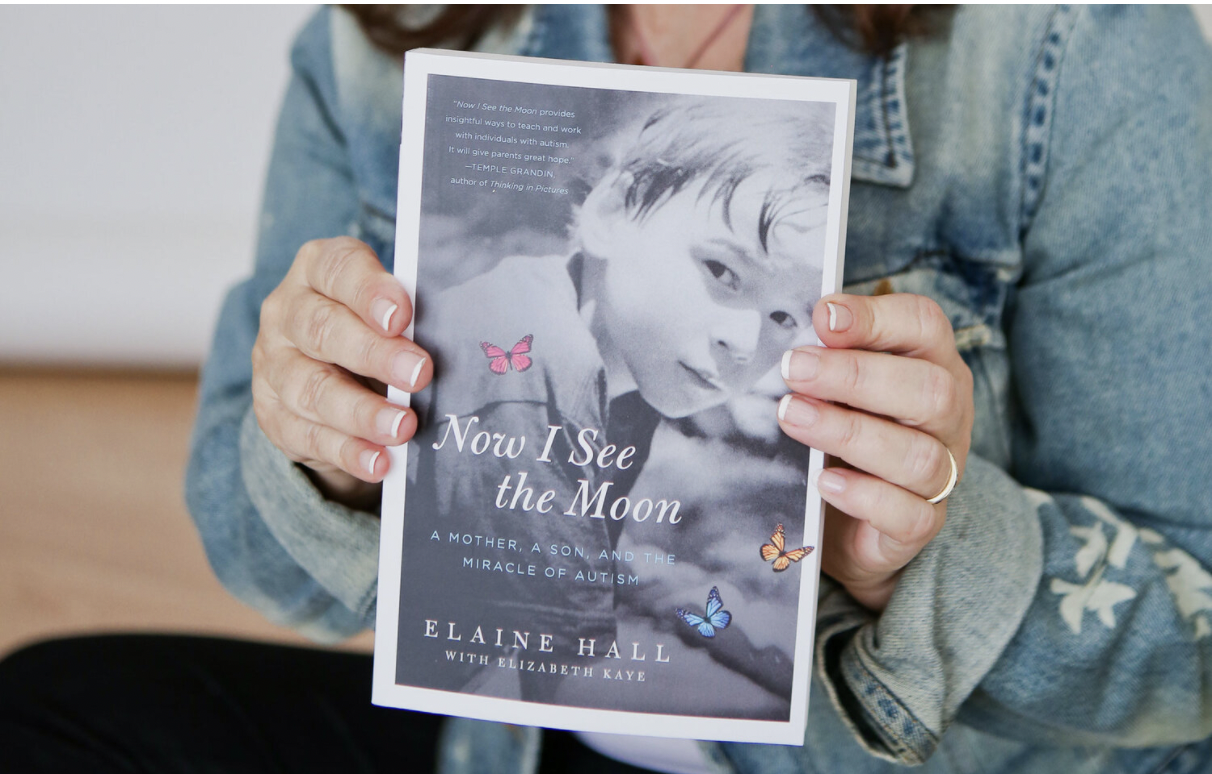
Elaine: We’d go to Aunt Pearl for those kinds of things, as well as other things. When my brother was 13, he wanted a telephone. My parents said no. So my brother went to Aunt Pearl. Then, in a very smart way, she said to my parents, “He’s 13 years old. Do you want him monopolizing your phone all the time? Get him a phone.” That was my Aunt Pearl. She had common sense wisdom, spiritual wisdom and documented everything about our family history. Aunt Pearl was also a published writer. She worked for the government, and did a lot of writing for the government. I started writing because of Aunt Pearl. I had a diary by the time I was seven and I wrote everything in my diary. I aspired to being a writer.
She didn’t die at 16. She went on to live a very long life. In her 70s, she had open heart surgery, which repaired the hole in her heart. She actually flatlined. She died and saw herself above herself—and then came back to earth back into her body and lived well into her 80s. She died a natural death in her 80s.
My other aunt, Aunt Bella was a dancer. She could tap dance on her toes. She was an extraordinary dancer and was invited to New York to perform on Broadway, but Orthodox Jewish girls do not do that, so she married. But still into her 60s, maybe 70s, she would tap dance for us. She could do the splits in her 60s and 70s. So I became a dancer inspired by my Aunt Bella.
Then lastly was my Aunt Shirley, who was one of the most loving, positive people. She always called me darling and gave me these incredible chocolate-covered cookies. Her spirit of love—of pure, pure love—is what she gave to me. My three aunts are with me all the time. These are my father’s sisters, who basically raised him because he’s 10 years younger than his older sister. He often said that he had three mothers and he was spoiled—and he was. All of my aunts inspired me.
Tabby: You mentioned your grandmothers earlier. Is there anything you want to share about them?
Elaine: My mother’s mother—my grandmother—had a shoe store. She worked. She cooked in the morning—her house was beautiful—and then she went to the store. She took care of all the bookkeeping in the store. She went to the shoe store every single day, six days a week, and also volunteered at her synagogue. She was just four-foot six and had mouth like a sailor. No one messed with her. She was beautiful and she took care of everything. I bonded with her. I had very, very strong women around me. I never thought women shouldn’t be working. All of the women worked. Everybody worked.
“My Aunt Bella was a dancer. She could tap dance on her toes. She was an extraordinary dancer and was invited to New York to perform on Broadway, but Orthodox Jewish girls do not do that, so she married… I became a dancer inspired by my Aunt Bella.”
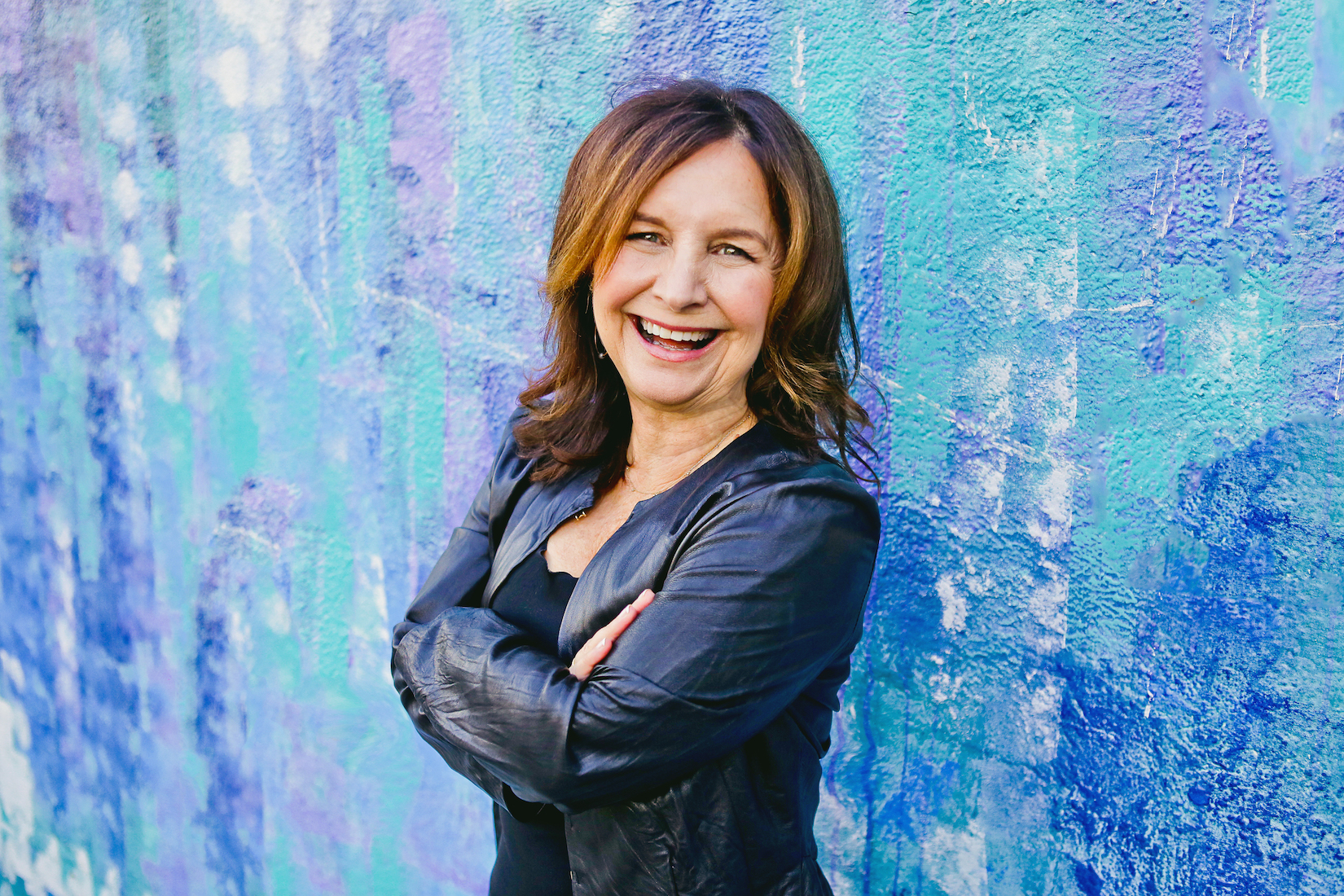
Tabby: April is Autism Awareness and Appreciation Month. What should people know about this?
Elaine: Every day, every moment, every second is autism awareness and appreciation. It really starts with appreciating, loving and accepting all parts of ourselves. When we as a humanity can embrace our own differences, we will be able to embrace the differences in others. It’s not about fixing or changing someone on the spectrum. It’s about opening and allowing ourselves to be curious, rather than judgmental. It’s about listening, and understanding ourselves and our own sensory differences, so that we can be more sensitive to the sensory differences of others. They say it takes a village to raise a child. I say it takes an individual on the spectrum with autism who’s neurodiverse, to change the consciousness of a village.
I qualify as neurodiverse. I have a highly sensitive neurological system. I don’t process things the way others do. Perhaps those of us who are neurodiverse are the canaries in the coal mine. The world tries to make sense out of chaos and noise and disruption. Those on the autism spectrum recoil from it. Who knows the truth? Those recoiling. I don’t want to say every person with autism is savant. No. But every person on the spectrum has an opportunity to impact those who are neurotypical if they can be open and receptive to someone who experiences the world differently.
“They say it takes a village to raise a child. I say it takes an individual on the spectrum with autism who’s neurodiverse, to change the consciousness of a village.”
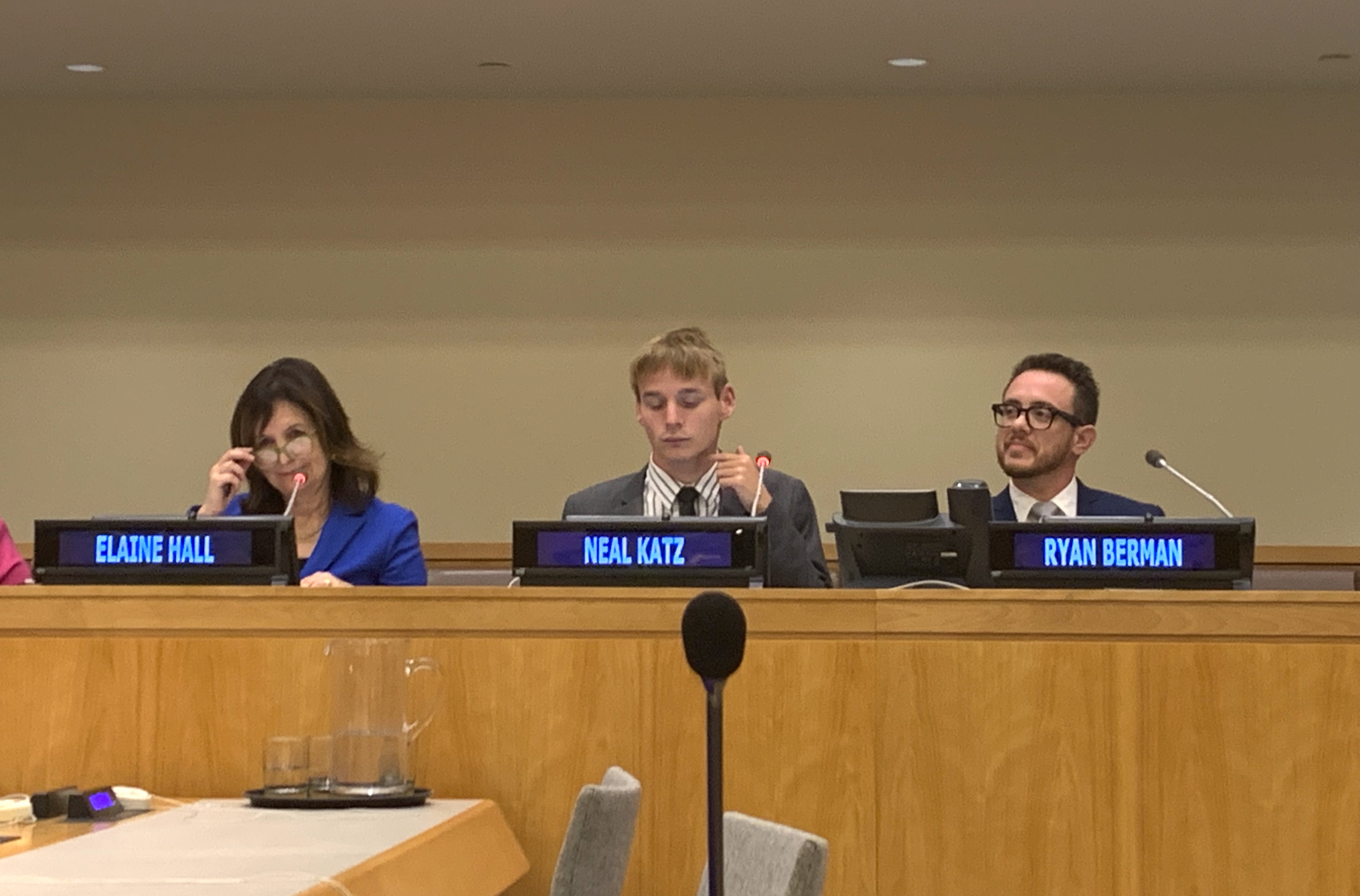
Tabby: Let’s go back to what you were sharing earlier about your work in Hollywood towards including neurodiversity and disability and the conversations around diversity, equity and inclusion. How is this going in Hollywood right now?
Elaine: It’s a great question. I’m launching a new advocacy org. We’re creating allies, including people with disabilities who have hidden their disabilities in Hollywood for many, many years. I’m coming to it from a place of what’s happened with autism. When I first spoke at the UN, there was nothing about autism. Jacqueline Aidenbaum and Juan Carlos Brandt, who from the UN, started World Autism Awareness Day, started with nothing. Now places are lighting up blue all over the world. [Blue is the color associated with Autism Awareness and symbolizes a feeling of calm and acceptance in a world that can be very loud.] The musician Stephen Stills has a son with autism. Every year, he gives a concert called Light up the Blues, with the greatest rock stars of our time. There was nothing, and now it’s common.
I think what’s happening in Hollywood is people are talking about diversity, equity and inclusion, but don’t realize they’re leaving out disability. I think, for some people, they just go, “Oh, gosh, I didn’t realize that.” I really believe that everyone is good at heart. They just don’t realize that disability is part of diversity, and how many talented individuals have a disability.
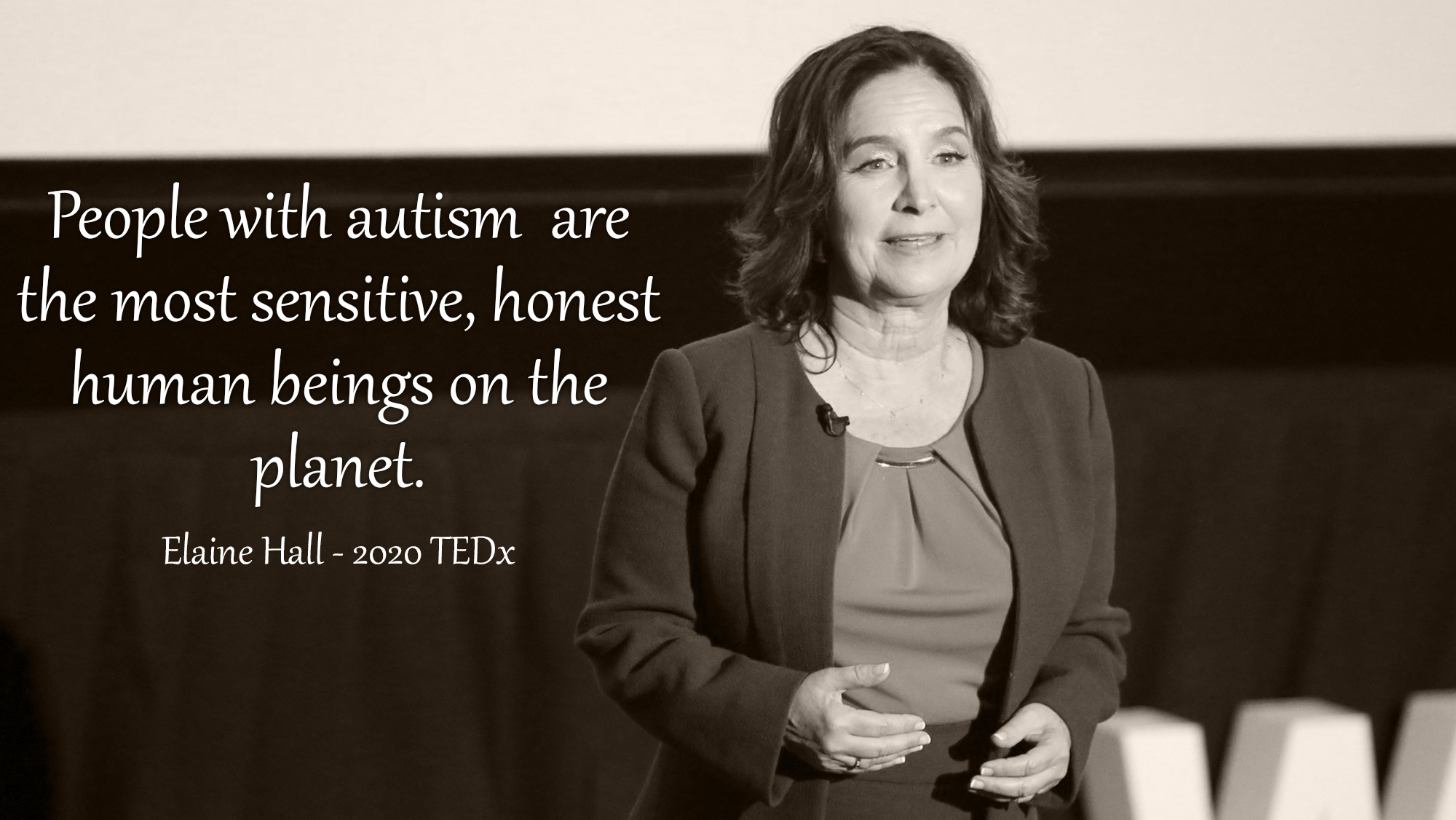
Elaine: The group that I’m working with in Hollywood is not coming from the bottom up. We’re coming from the top down—like what the UN did. We’re coming from some of the highest-powered people in Hollywood. I’m working with brilliant, incredibly smart people that are making change from the top down. It’s so simple. In movies like LaLa Land with thousands of extras, let’s make a quarter, or even 20 percent of the extras have a disability in every scene. In every commercial, just make someone drinking a milkshake out of fast-food place that uses a wheelchair. Why not? Let’s make the media resemble our lives. Let’s take disability out of the closet. Hire people with disabilities in all aspects of production. I’m currently working on a show for Amazon called Forget Normal where all three leads are on the spectrum. I believe this show will make a huge difference in authentic representation and story line.
I think there’s openness. We’re at a really great time. I get so many scripts a week that are casting authentically. Disney Animation is casting authentically. So many people are open. They just don’t know how. And that’s why they call me. It’s actually a lot simpler than people are afraid of. It’s so much simpler. That’s my job—to show them how simple it is.
Tabby: I know a lot of women who want to use their voice and leadership to create social change in their area of focus. What would be your advice to them to expand their impact?
Elaine: Get a coach. We can’t do it alone. Olympic athletes have coaches. There are muscles that you need to work on and develop that you cannot do on your own. I believe that everyone is put on the planet for a mission. And they know it. They know what that mission is, and it’s their obligation to follow that and get support and be around like-minded people who say ‘yes’ and encourage them. Join a community of like-minded women leaders. You’ll realize that we all have an insecurity, we all have something that we’re working on. Then see how you can support each other. You need your support system—other people doing important work that you can be around so you don’t feel like you’re a unicorn.
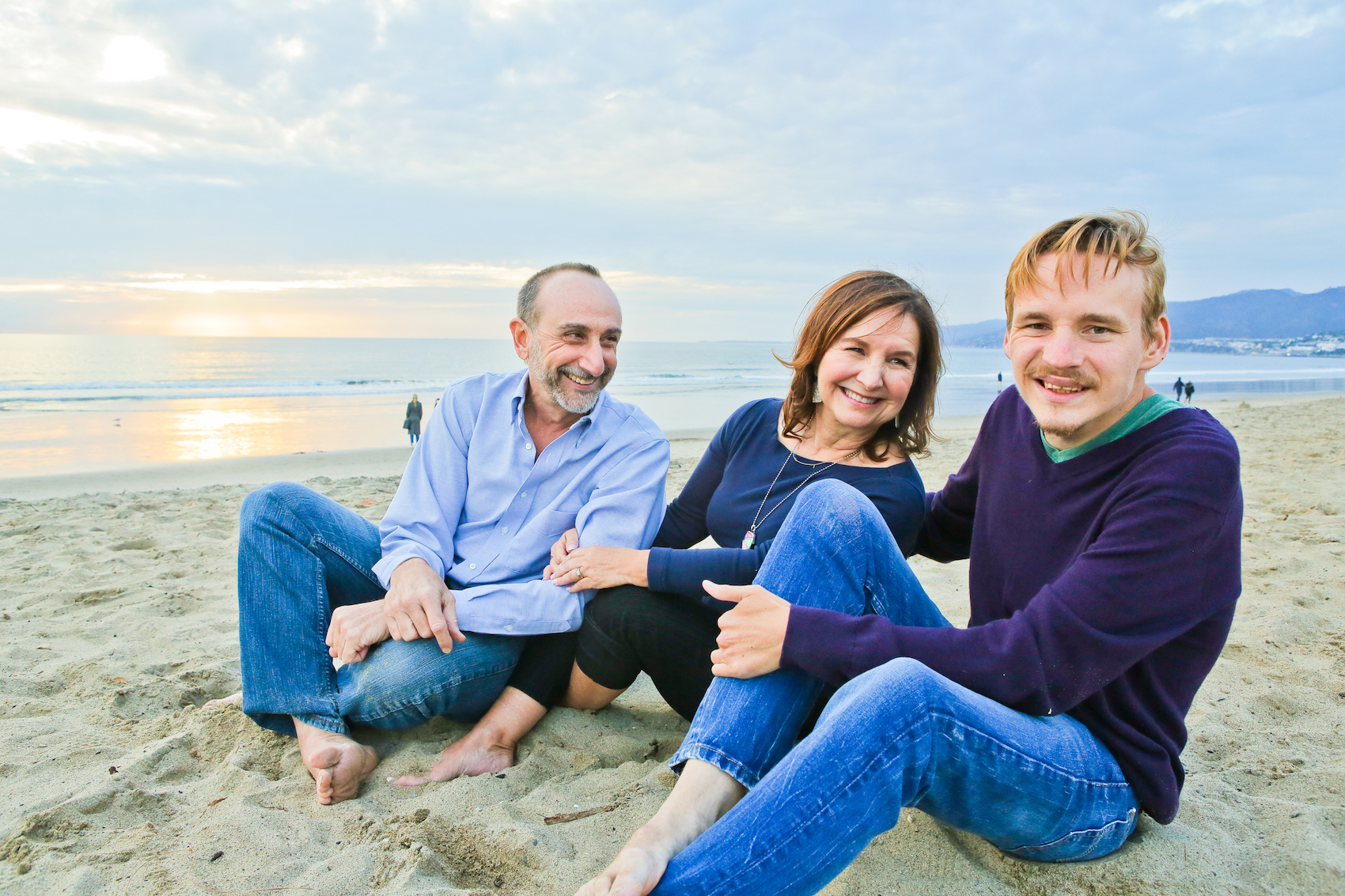
Tabby: Are there any last thoughts you have to support women with their own voice, leadership and feminine legacy?
Elaine: Listen to the person that does not speak because they may have the most important thing to say. Listen to yourself. Pray. Meditate. Do what you need for self-care. Make that the priority. The Golden Goose can’t lay the golden eggs if the goose is cooked. If you feel drawn to something, don’t hesitate. Get the support and do it. Know that you’re not alone. Find like-minded people. And shine. Shine, because when you shine, you’re bringing the light. The patriarchal thing is: If you shine, someone else gets eclipsed. The reality is: If you light a candle with your candle, the room gets brighter. We want to be that candle. We want to be that light to continue lighting others and then the world gets brighter and brighter and brighter and brighter.
Learn more about The Miracle Project and Elaine Hall’s Trainings & Consulting.
This interview first appeared on tabbybiddle.com.
Tabby Biddle, M.S. Ed. works at the intersection of women’s leadership, feminine spirituality and social change. She is the co-founder of 50 Women Can Change the World in Media & Entertainment, the bestselling author of Find Your Voice: A Woman’s Call to Action, and an internationally celebrated women’s leadership coach, educator, strategist, and group facilitator for her unique approach to activating women’s leadership. Learn more.


